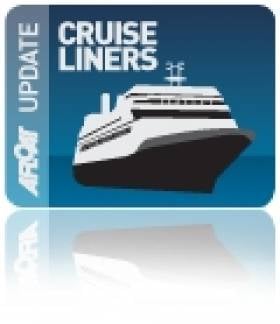Displaying items by tag: MV Queen Victoria
Cruise Line Business Worth €60m
There are many indirect economic and tourism benefits to Ireland from this sector, as well as the benefit of introducing Ireland to new markets and business opportunities. Such cruise visits also help to showcase Ireland's world class shore products, destinations and highlights all that Ireland has to offer visitors.
One of Ireland's advantages is the strategic and geographic spread of its numerous ports, many of which are in close proximity to world class tourism destinations.
Speaking at Seatrade Miami this week, the Chairman of Cruise Ireland, Mr Brendan Keating said "Cruise Ireland aims to promote the island of Ireland as an excellent cruising ground for cruise companies. With the total economic contribution of €60 million, we need to ensure that Ireland maintains this level of business and looks at methods of growing it in the future."
He continued; "Cruise Ireland is looking forward to the 2011 season with confidence. We expect to see further growth in ship calls and the continued establishment of Ireland as an important cruise liner destination. Marketing Cruise Ireland at Seatrade will hopefully encourage further cruise bookings to Ireland in 2012 and 2013."
Representatives from Cruise Ireland attended Seatrade Miami to promote the Island of Ireland as a cruise line tourism destination. This event is attended by over 10,000 delegates, cruise line operators, the world's leading cruise tourism destinations and 118 countries.
Each year, all of the international operators including Princess Cruises, Royal Caribbean, Cunard, Holland America Line and NCL visit Irish ports to access Ireland's world class destinations.
The 2011 season will kick off in early April with calls by the MV Queen Victoria to Cork, the MV Boudicca to Dublin and the MV Ocean Nova to Belfast






























































